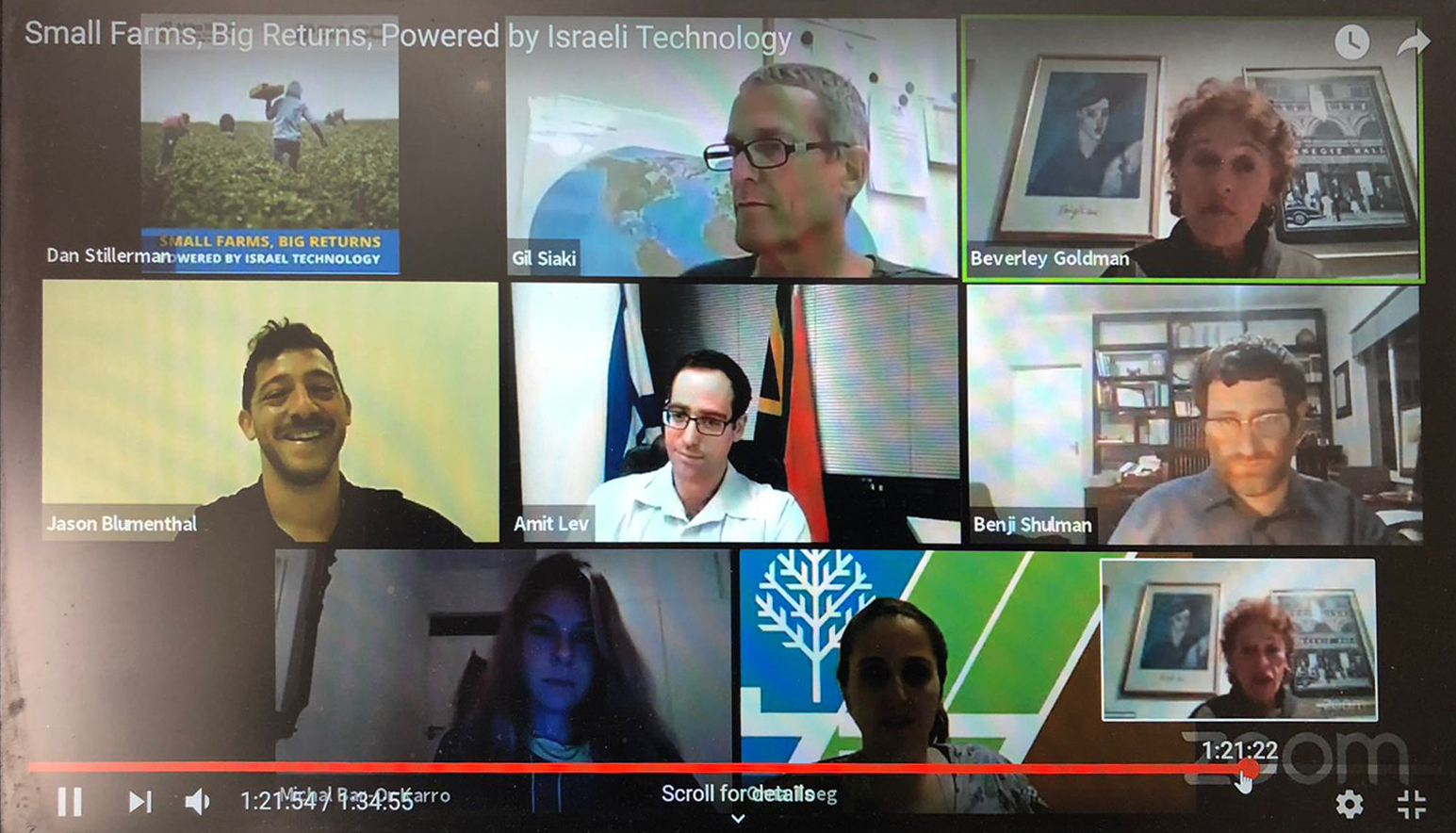
Israel

Israeli agritech beats the African heat
By 2050, the world’s population is expected to be close to 10 billion people. Innovative technology must be harnessed to feed them all, and tiny Israel is at the heart of this global agricultural revolution.
Israel’s agritech innovations were showcased in a webinar titled “Small farms, big returns: powered by Israeli technology” hosted by the South Africa Israel Chamber of Commerce on 1 July.
Amit Lev, the trade and investment commissioner at the Israeli embassy, said that technology alone isn’t enough for successful agricultural investments. “You need good partners and a good business model.”
Lev mentioned some Israeli agritech that has been successfully used in South Africa and Africa. Projects included a drip irrigation system that uses gravity to distribute water to fields, insurance schemes for smallholder farmers, and ready-made kits for irrigation and fertilisation especially geared to the small farmer. In Ethiopia, agricultural loans are made that give farmers access to specific Israeli inputs such as seeds and pumps. Yields of tomatoes increased 64% in a year.
Agri-entrepreneur Guy Sela is vice-president of agronomy at CropX, an Israeli company started in 2015. CropX gathers data from above and below the ground through sensors that look like elongated mushrooms that are easy for farmers to install. The sensors measure moisture, temperature, and nutrients in the soil among many other readings. They are paired with a sophisticated online farm-management app which aids in irrigation, fertilisation, and crop protection. CropX has about 500 000 acres under management across the world in diverse crops such as coffee, onions, bananas, citrus, avocados, and sugarcane. It also has clients in South Africa.
South African born Israeli Jason Blumenthal is an agritech analyst at the Kinneret Innovation Center (KIC) in Israel’s north. The KIC acts as an accelerator and tech hub for connecting all the links in the agritech value chain, from farmers and scientists right up to investors. This drives innovation in an integrated ecosystem. One of its programmes trains university students to train high school students to think innovatively. The students take part in an annual competition in which they can win mentorship from KIC for a year. KIC has brought hundreds of high-tech agricultural jobs to its region.
Another ex-South African, Dr Clive Lipchin, is the director of the Arava Institute for Environmental Studies and the Center for Transboundary Water Management. He spoke about Israel’s world leadership in waste-water recycling, especially for irrigation. This is especially important in the context of climate change and the need for non-conventional water sources. Sewage poses massive pollution and health challenges.
Lipchin explained how Israel has pioneered the treatment of “grey water” – the run-off from sinks, basins and showers – to make it safe for irrigation. Off-grid units use solar panels rather than electricity to power a “vertical green wall” in which the water is purified. The system is used to grow high yields of tomatoes in greenhouses, for example. It could easily be adapted for use in rural South Africa where electricity is scarce. He stressed the importance of bringing in local government and communities when implementing such projects.
Finally, Gil Siaki, head of afforestation at the Keren Kayemet L’Yisrael-Jewish National Fund, talked about the Israeli experience of planting trees as deserts are expanding due to climate change. His work involves watershed management – making the most of collected rainwater to make environments habitable. He demonstrated a project Israel has been running in arid Turkana in Kenya since 2014. There, they had the challenge of making saline clay soil suitable for planting indigenous trees and growing crops. Villagers were taught how to nurture seedlings and build terraces to harvest water.
Israel’s agricultural innovation has already been shown to have great benefits for African countries in a world growing hotter and drier. Israel can now make African deserts bloom.










